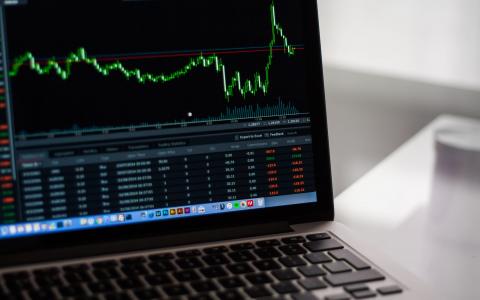
(Forbes) - A key component of President Joe Biden’s agenda is making its way toward law, which contains new taxes on large companies. The bill also includes a provision that aims to curtail a trending balance sheet strategy utilized by companies, known as stock buybacks.
The Inflation Reduction Act of 2022 was approved by the U.S. Senate via the budget reconciliation process on Aug. 7, with Vice President Kamala Harris serving as a tie-breaker on the vote. The $740 billion reconciliation package now heads to the Democrat-controlled House of Representatives, expected to take up the bill later this week.
The bill has two main items that impact corporate taxes: a corporate alternative minimum tax (AMT) equal to 15% of financial statement income minus foreign-tax credits and the taxation of stock buybacks.
Here’s how the proposed taxation of stock buybacks might impact average investors.
Details on the New Tax on Stock Buybacks
A stock buyback is when a public company uses its own cash to buy its stock on the open market, thereby reducing the number of shares outstanding. With fewer shares available, earnings per share (EPS) go up; typically, the stock price does too.
Buybacks are also used as a tactic when companies think the market is undervaluing their business.
The new bill creates a 1% excise tax on stock repurchases by publicly traded companies starting on Jan. 1, 2023. Senate Majority Leader Chuck Schumer (D-NY) stated the tax would raise about $74 billion over a decade.
“I hate stock buybacks,” Schumer told reporters before the bill was passed by the Senate. “I think they are one of the most self-serving things that corporate America does.”
The buyback tax was added last minute to gain the support of Sen. Kyrsten Sinema (D-AZ), who has remained a hurdle for President Joe Biden’s agenda, and didn’t support a previous version of the bill that would’ve closed the carried interest loophole.
Why Lawmakers Targeted Buybacks in the New Bill
Companies have two ways to distribute their profits to shareholders: Issuing dividends or completing stock buybacks. The stock buybacks boomed after passing the Tax Cuts and Jobs Act (TCJA) in 2017—and continues to reach record highs.
For the year ending in March 2022, buybacks on the S&P 500 reached a record $984.6 billion.
Democratic lawmakers have been fighting to rein in the practice of buybacks since at least August 2015.
Since CEO compensation is usually tied to stock performance, supporters of the new excise tax say corporations have long been abusing the practice, with CEOs utilizing buybacks for personal gain.
Democratic lawmakers argue that instead of completing share repurchase programs, companies should reinvest the cash directly into their business by improving their products or services, granting workers higher wages and better benefits.
But there is some evidence that buybacks benefit the average investor. For a little bit of context about retail investors, more than half of Americans report that they own some type of stock, according to Gallup’s April Economy and Personal Finance survey.
A 2021 study suggests that stock buybacks have a variety of positive impacts on retail investors, including reducing stock volatility and saving retail investors billions in transaction and price impact costs.
Opposing voices add that a tax on stock buybacks lowers the distribution of profits to shareholders, and stifles their opportunities to invest in smaller companies and encourage innovation.
How the New Stock Buyback Tax Might Impact Investors
Theoretically, companies can respond to the new 1% stock buyback tax in two ways: They can increase their dividends or stick to their buyback plans and see a slightly greater share of the profits go to Uncle Sam.
Companies that continue to engage in stock buybacks after the new tax is introduced in 2023 will see a reduction in profits, says Richard Smith, CEO of RiskSmith, an investment risk management tool.
The buyback tax, combined with a new minimum 15% tax on corporations, is estimated to lower the 2023 earnings of S&P 500 companies by about only 1.5% per share.
Smith adds that the new buyback tax will also create new costs that businesses will “now have to pass on to their customers.”
Another potential change investors could see after introducing the tax depends on how the companies they invest in react to it, says Ross Fedenia, certified financial planner and managing director at Atlatl Advisers.
If the 1% tax is significant enough for the company to issue dividends instead, investors could face taxes and likely see a lower tax return, rather than having the benefit of deferring those taxes to capital gains status when or if the investor ever sells the share.
Overall, analysts aren’t expecting the new tax to deter companies too much from repurchasing stock. But some companies will move toward replacing their repurchasing strategy with dividends—but which ones, and how large they may be, remains up in the air, says Fedenia.
“That’s something that we’re just going to have to wait and see,” Fedenia says.
By Kelly Anne Smith
Editor Farran Powell
August 9, 2022,



